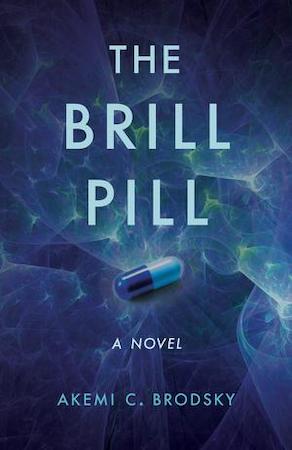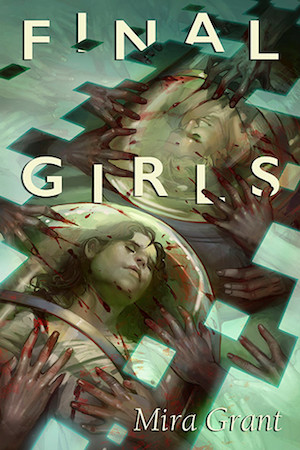For me, the term “mad scientist” brings to mind images of bubbling beakers filled with neon liquids; elongated, menacing silhouettes; and of course (Pinky and) the Brain. There is a long history of stories from Frankenstein and The Island of Dr. Moreau all the way to Rick and Morty where brilliance tips over into madness and we watch wide-eyed to see the damage.
Science-fiction is based in reality and there is something about the possibility of real miracles or maledictions that draws us in. Frankenstein’s monster may have seemed like more of a thought experiment at the time, but is it so difficult to imagine that there could be a genetically-engineered equivalent being cultured in some secret underground laboratory today?
Scientists are real, respected, even revered, members of our society and they hold a special power—the power to change our world, a little bit at a time. We can’t help but wonder what might happen if they go too far too fast or if they lose their way and the scientific benefits to society become distorted—the literary possibilities are infinite.
My novel, The Brill Pill, follows a research scientist throughout his career as he struggles with medical ethics, dodges his own demons, and creates a few mind-altering treatments along the way. The protagonist is an anti-hero, lost in the world of academia, arrogantly believing he is doing the right thing while digging deeper and deeper into mad scientist territory as he loses all sense of right and wrong.
There is a lesson to be learned from mad scientists in literature. Brilliance and success come with a certain amount of hubris and an unavoidable separation from reality. Individuals at the top of their fields, by definition, have little oversight. They are given free reign over their domain and yet they are still human. If mad scientists are allowed to indulge themselves unchecked, their mistakes may affect us all.
Vicious by V.E. Schwab
Two college roommates discover during their science research that having a near-death experience can cause some people to develop superpowers. So they decide to try it themselves. They plan to kill each other and hope against hope that they can bring each other back before it is too late. If that isn’t mad, I am not sure what is. Of course, they are successful, and the incredibly addictive story of how they become mortal enemies introduces us to a colorful cast of endearingly gray characters from the bad to the very worst.
All the Birds in the Sky by Charlie Jane Anders
Nature and technology collide in this mashup of mad science and magic. Two outcasts in middle school (ugh, middle school) form an unexpected friendship that will be tested time and again by the harsh realities of the world (and all of the typical dramas that come between a witch and a techie). As the planet burns around them, mistakes are made on both sides, but we root for them throughout and wonder whether, if they can just stay friends, we all might be capable of something better. This story is all kinds of dark and all kinds of hopeful, terrifyingly honest and laugh out loud funny. Anders weaves together a brilliant narrative with an amusing dose of snark and pop-culture awareness.
Oryx and Crake by Margaret Atwood
In this speculative tale we are introduced to one the maddest of mad scientists when he is only a kid. By building a dystopia that is unnervingly easy to imagine our world falling into, Atwood makes us wonder if he was always destined for madness or if the environment that he has grown up in has shaped his destiny. In any case, science is the weapon of choice and the consequences are bad. Devastatingly, hysterically bad. We follow our protagonist, Snowman, as he struggles to survive the aftermath of what has occurred, but is survival enough? Incredibly sharp prose carves out the story with sympathy for the characters and repulsion at what has become of them.
The Echo Wife by Sarah Gailey
In this delightfully creepy and wholly engrossing novel, a scientist who works on clones discovers that her husband has stolen her research and has cloned himself a new wife using her DNA. This is mad enough on its own imho, but the more we learn about the protagonist’s research the more we begin to realize that she herself is a mad scientist as well. Her work with clones raises ethical concerns that seem to be right on the doorstep of our own world, making them all the more eerie. The novel carefully touches on a number of serious issues including marital struggles and domestic violence as well as women in science and toxic academic culture without drowning in them. The narrative maintains the hard-to-put-down plot of a mystery novel with just a touch of horror to really drive it all home.
As She Climbed Across the Table by Jonathan Lethem
Is falling in love with a science experiment mad? For the purposes of this listicle, yes. Lack is a physics experiment gone awry or gone a-right depending on who you ask. An emptiness on a table, Lack absorbs some items, rejects others. No one can figure out why. Everyone is obsessed with Lack. Alice is in love with Lack. Philip is in love with Alice. It’s complicated. The story is peppered with eccentric academics, extreme to the point of parody and yet ever so close to reality. Are all scientists a little a mad? Are all humans? Lethem delivers it all in the most entertaining voice that will have you laughing and loving right along with the painfully relatable Philip Engstrand.
Final Girls by Mira Grant
This one is a novella, and a scary one. Dr. Jennifer Webb has created a new form of dream therapy, or rather, nightmare therapy. It’s simple. Enter a shared nightmare with one estranged friend or family member, come out with a close, unbreakable bond to that person. The shared trauma brings people closer together, digging deeper than the differences they have on the surface. Ok, it makes some logical sense however creepy it is… But what happens when the scientist enters her own nightmare scenario and someone nefarious takes over while she is under? You get an incredibly creative, darkly suspenseful, page-turner. There’s a lot more packed into this short narrative (lurking in the trapped subconscious) but the premise was enough to get me reading.
The Candy House by Jennifer Egan
In The Candy House, we witness the mad-scientist in its latest form. The tech billionaire. Bix Bouton has brought to the world a new technology: Own Your Unconscious. It sounds great – having all your memories right at your fingertips, you’d never truly forget anything ever again. But some memories fade for a reason, others were never meant to be shared. The Candy House is particularly intriguing because it does not focus on Bix alone. Each chapter is a window into a different life that has been changed in small and large ways by his technology. It is so universal that even people who do not subscribe to it are affected in some way. Hey, that sounds familiar… This one hits a little close to home and that makes it all the more engaging.
The Daughter of Doctor Moreau by Silvia Moreno-Garcia
Part historical fiction, part coming of age story, part romance, part adventure, part science-fiction, this novel has it all! And on top of all of that it adds a twist on a classic mad-scientist novel. Carlota is the infamous Doctor Moreau’s daughter and we see his mad work to create hybrid creatures through her eyes, first as a doting daughter and eventually as an intelligent, feeling young woman. As we tenderly watch Carlota find herself and her strength throughout the novel, Moreno-Garcia weaves in narratives on colonialism, racism, misogyny, and heartbreak. There is depth to all of the characters in this novel and the mad scientist takes a backseat as we focus on those that have been affected by his work.
State of Wonder by Ann Patchett
Marina, a researcher for a pharmaceutical company, is sent from her quiet life in Minnesota to a remote village in the Amazon. She’s on a quest to uncover the mystery of a colleague who has died in the jungle and to track down her elusive former med school professor who is now in charge of the drug her company is developing. The premise is a lot! But it unwinds slowly and carefully and lets you in a little bit at a time, keeping you hooked on discovering what piece of the plot will unfold next. Scientists make up half of the cast and most of them have gone a little bit mad living in the Amazon, but the longer Marina stays, the more life there begins to make sense to her. This is a winding tale in the best sense, because you will never guess how it ends.
Observer by Robert Lanza and Nancy Kress
Observer is all about the “Primacy of the Observer.” The theory that if we don’t observe something, it doesn’t exist (and if we do, it does). Wait, what? Yeah, when you walk into a room and see a table it’s there, but before you saw it, it wasn’t there. (It’s a little more complicated than that, but for the purposes of this short paragraph that’s the gist). This is actually true of sub-atomic particles, so it isn’t quite as absurd as it sounds, assuming everything around us is just a sea of quantum foam. The part where the real mad scientist vibes kick in is when we learn that the head of the project, who is dying of cancer, wants to use this theory to create his own universe so that he can essentially live forever. Immortality chasing is a classic mad scientist and literary theme that shrewdly highlights the human condition and makes for characters and conundrums that we can easily relate to.



